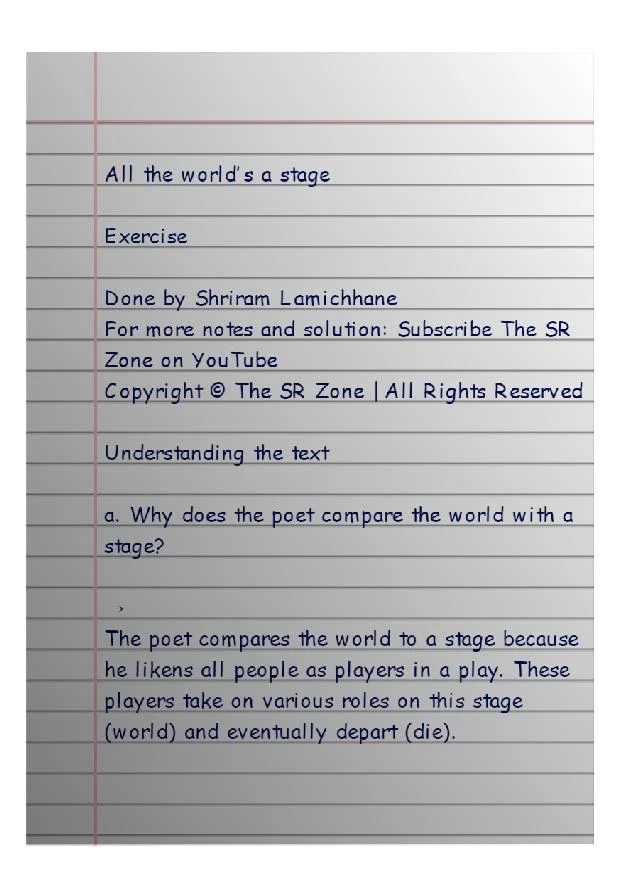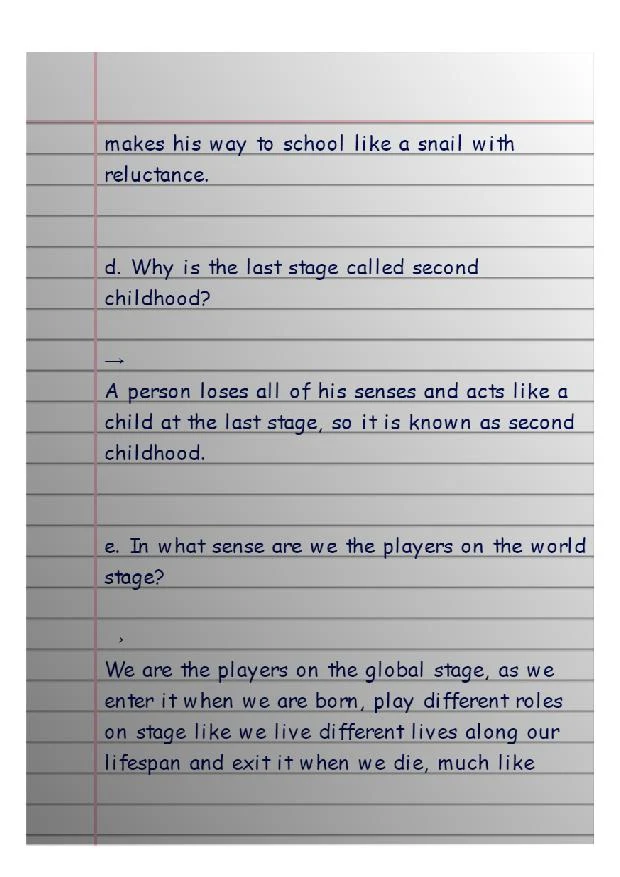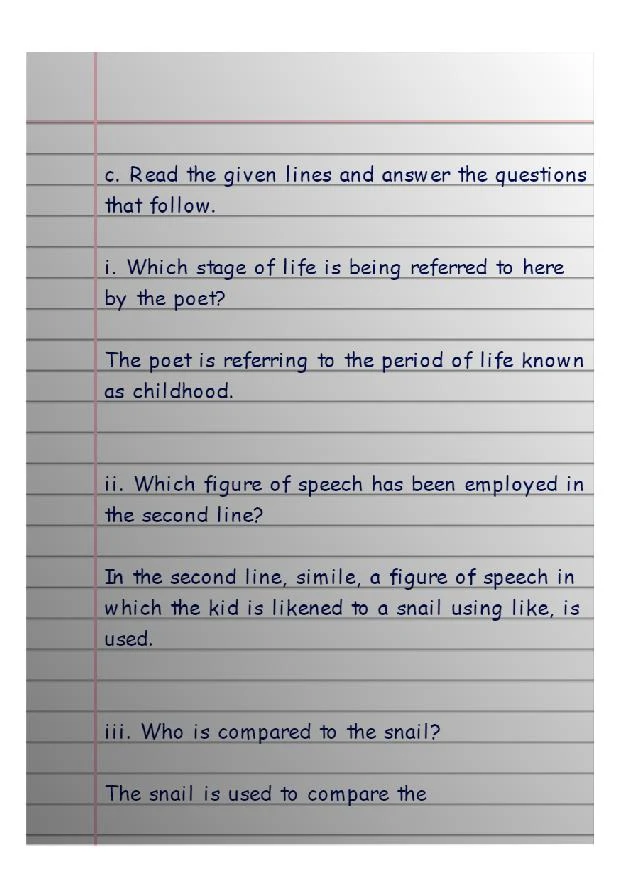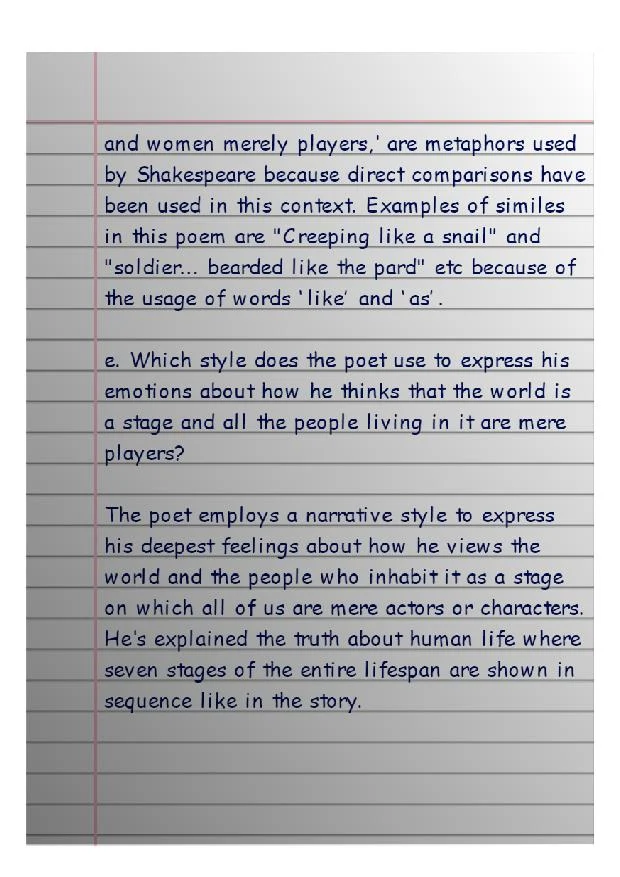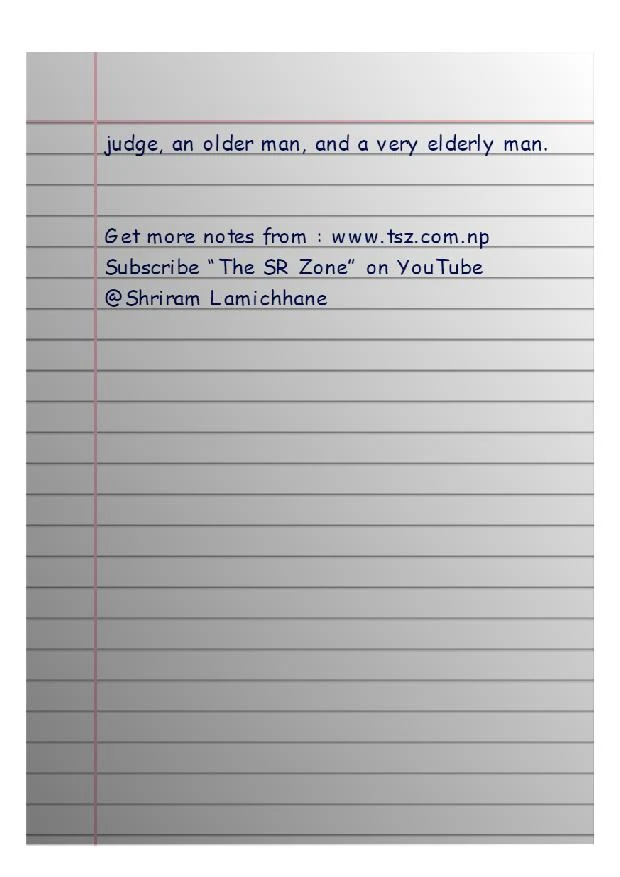All the world’s a stage Exercise Class 11 English: Summary & Questions Answers
William Shakespeare's poem "All the world's a stage" is the metaphorical representation of life as a theatrical performance, highlighting the different stages of human existence and the inevitability of aging and mortality. This poem is in Class 11 English Unit 3 of poem section and it's exercise question answers solution and summary is provided in this article.
For complete notes of Class 11 English Book, go to this link - Class 11 English Guide & Notes.
All the world’s a stage Exercise
All The World's a Stage by William Shakespeare Summary
William Shakespeare's "All the world's a stage" is a realism poem. It was published in 1623. The poem's central subject is that man has lost the game of life. The world, according to Shakespeare, is a stage, and everyone is a player. He claims that over the course of a man's lifespan, there are seven phases. In his lifetime, he plays seven roles and then departs from the world's stage.
A man's formative years are known as his childhood. He had fun with his mother's arms around him while he played. During this time, he may vomit or cry a lot.
At the second stage in his life, the guy is an apathetic secondary school student. In the third stage, he transforms into a passionate lover. He's too busy writing love songs for his lover to get attention from his lover.
His aggressiveness and ambition had increased at the fourth stage. In everything he does, he's trying to build his reputation. He decides to join the military because he wants to defend his nation. He matures and gains knowledge in his fifth stage, when he becomes a fair judge. He appears with loose trousers and glasses in the sixth stage.
It's as if his once-masculine voice has been replaced with a childlike trill. His second childhood is the last period. Slowly, he begins to lose his senses of sight, sound, smell, and taste, as well as his ability to perform his previous duties.
As a result, Shakespeare's poem 'All the World's a Stage' depicts the seven phases of a man's life.
